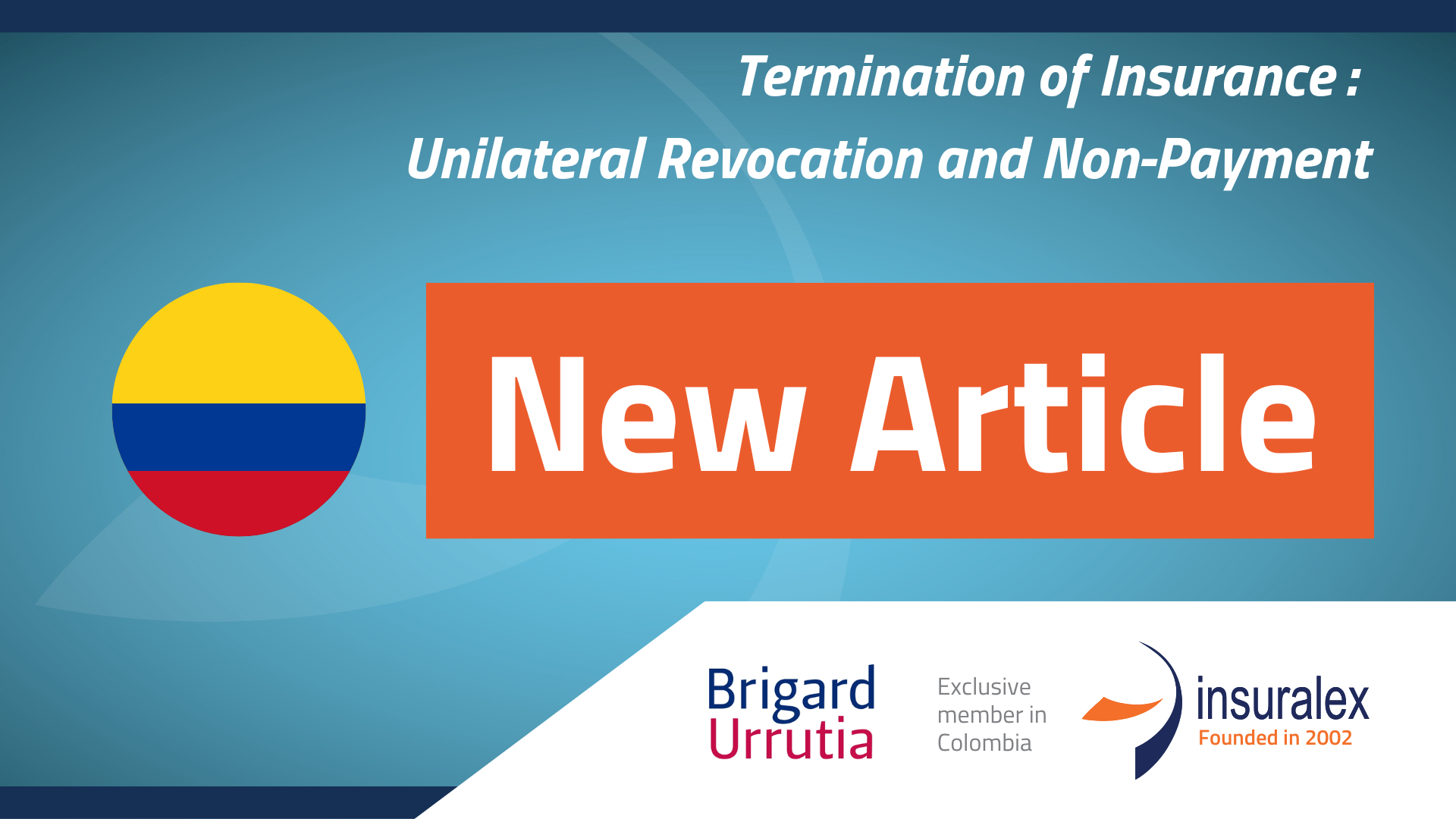
The Colombian Supreme Court of Justice (the “Court”) addressed a dispute between (i) a policyholder under an all-risk insurance policy and (ii) the insurer. The issue arose from the interpretation of Articles 1068 and 1071 of the Colombian Commercial Code, concerning the unilateral revocation of insurance contracts and automatic termination for non-payment of premiums, figures that have different regulations under Colombian law.
• Facts:
The company purchased an all-risk insurance to cover damages to its property. During one renewal of the policy, the premium was financed by a third party under a loan agreement. The insured company defaulted on one loan installment, prompting the financier to request that the insurer recognize the policy’s automatic termination due to non-payment of the premium, as stipulated in the loan contract.
A loss subsequently occurred, and the insured filed a claim. The insurer denied it, arguing that the insurance contract had automatically terminated due to non-payment of the premium and, alternatively, that it had unilaterally revoked the contract.
The insured countered that the insurer’s unilateral termination did not comply with the notice requirements under Article 1071 and that automatic termination was inapplicable since the premium had been paid in full by the financier upon loan disbursement.
• Procedural History:
The Second Civil Court of Bucaramanga denied the insured’s claim, ruling that the insurer had validly revoked the contract under Article 1071; however, Bucaramanga’s Court of Appeals reversed this decision and ordered the insurer to pay the indemnity, prompting the insurer to file a cassation appeal before the Court.
Supreme Court Decision:
The Court upheld the Court of Appeal’s ruling based on the following considerations:
1. Contractual Interrelation:
The Court acknowledged that the loan agreement and the insurance contract were interrelated but retained their legal independence. The contractual clause allowing automatic termination of the insurance for non-payment of the loan installments was invalid. Since the insurer had received the premium in full from the financier, automatic termination was inapplicable.
2. Automatic Termination Clause:
The Court found that the clause permitting automatic termination was ambiguous and unfairly favored the financier. It clarified that automatic termination under Article 1068 of the Commercial Code only applies when the premium is unpaid, which was not the case here, the premium was already paid in full to the insurer by the financer with the loan disbursement.
3. Unilateral Revocation:
The Court rejected the insurer’s claim of valid unilateral revocation under Article 1071, emphasizing that revocation requires written notice to the insured at least 10 days in advance. In this case, the insurer failed to notify the insured until after the claim was filed.
4. Legal Framework:
The Court distinguished between automatic termination under Article 1068 and unilateral revocation under Article 1071, concluding that neither was applicable in this case, as automatic termination was precluded by the payment of the premium, and unilateral revocation was invalid due to the insurer’s failure to comply with the statutory notice requirement.
5. Conclusion:
The Supreme Court affirmed that the insurance policy remained in force at the time of the loss and held the insurer liable for the indemnity. This decision reinforces the importance of adhering to statutory provisions and ensuring fairness in contractual relationships involving insurance policies.
Brigard Urrutia, Insuralex exclusive member in Colombia
Insuralex´s Colombia Insurance lawyers and authors:





